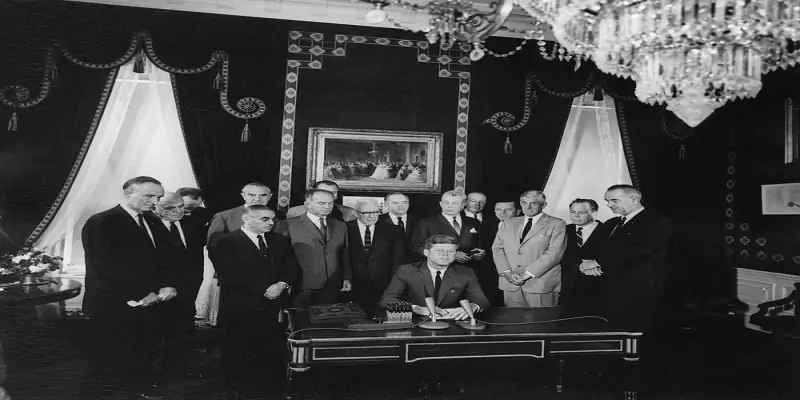Global Security Challenges Through Nuclear Diplomacy
The Comprehensive Test Ban Treaty (CTBT)
The extensive Test Ban Treaty (CTBT) was signed in 1996 following an extensive discussion that lasted for two decades. The Treaty aims to stop nuclear tests and explosions at any point on the planet and limit nuclear weapons development. Numerous serious attempts were put in place at the beginning of negotiations, but they were all rejected for the same reason. But, The Treaty came to United Nations General Assembly for discussion. After a lengthy discussion and negotiations, the Treaty included five nuclear-capable states. However, the Treaty was not accepted due to its veto of India.
CTBT is designed to stop the advance of nuclear technology, reduce the use of weapons of mass destruction, and reject any move in that direction. The goal was set out in the Treaty to eradicate nuclear arsenals of the entire world. Still, no Nuclear Weapon State (NWS) fulfilled its promises even though the Treaty had been signed emotionally. The body that was created to implement the Treaty is known as the Comprehensive Test Ban Treaty Organization. The Treaty's principal features are:
. The CTBT will prohibit any nuke test that could result in an explosion.
. The Treaty will establish an organization to implement its provisions and international measures for verification.
. There is no inspection of nuclear facilities, only checking and verifying nuclear explosions is part of the Treaty.
. CTBT does not prohibit tests, nuclear explosions, or research activities related to nuclear power allowed under the Treaty.
. The Treaty will come into force after 180 days after all states' confirmation.
. Any modification to the Treaty will be subject to an Amendment Conference and will be accepted by a majority vote by a majority of the states.
The Treaty was negotiated for over two decades and was greeted with a massive celebration by the US and other nations. The parties were all in agreement over the prevention of nuclear modernization and the production of dangerous nuclear weapons. The main reason for the negotiations was to stop the arms race that was quantifiable between nuclear weapon nations. Nuclear testing or explosion was a significant event in developing nuclear weapons. CTBT was a global initiative to reduce and eliminate nuclear weapons used in this way.
India is the fourth-largest military power and has been given the option of increasing its arsenal for their offensive capabilities since its creation. Pakistan is not required to sign the CTBT regardless of whether India accepts it because the unilateral signing of the Treaty would be suicide, leaving Pakistan in the hands of India. If both countries sign CTBT, the Treaty would constitute an all-encompassing approach to controlling arms and would include measures for arms reduction and resolution of the significant dispute over Kashmir and would create an environment of trust and trust between the two nations.
It is interesting to note that India has been at the frontline of CTBT; however, now India is opposed to CTBT and why? Because it gains a huge power position, an undisputed regional power, and perhaps an unassailable seat on the Security Council. India is against the CTBT and cannot accept them unless the US sign them. If the US accepts the CTBT, India is pressured to sign the Treaty and ratify it.
Pakistan must be mindful of the national security interest that is the most crucial consideration, and then they must be a signatory to the Treaty. They should not accept the CTBT until all nations sign it and the five initial nuclear states completely disarm all nuclear arms. So long as there's no equality between dealing with nuclear and non-nuclear as well as between the haves and notes. We must sign CTBT only when India is also willing to sign it. Everyone knows it is a bad idea to sign CTBT is detrimental to Pakistan. When CTBT is signed, Pakistan's capability to acquire or improve nuclear weapons will be restricted. Pakistan is being compelled to sign CTBT. The country is under financial pressure from countries that loan money and IMF. The government of Pakistan is exceptionally naive in this regard, and it would be a shame should our leaders agree with the CTBT and agree to it. It's a matter of principle. We can't and should not compromise our sovereignty. Pakistan, and after signing this Treaty, we may be required to sign other treaties.

